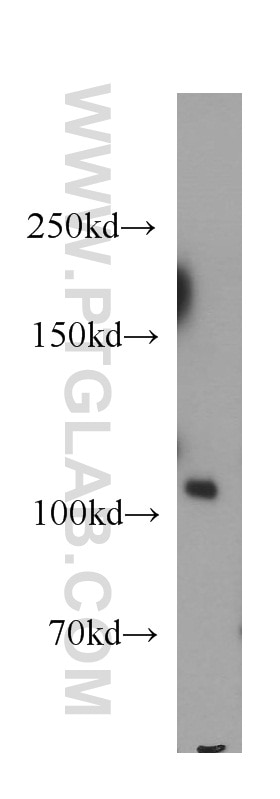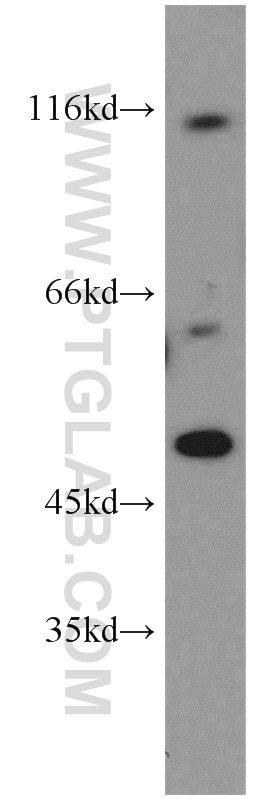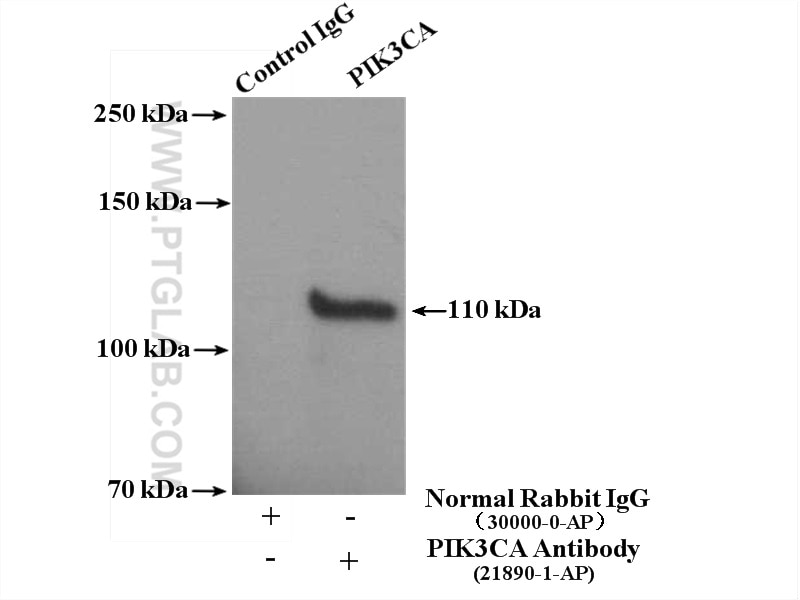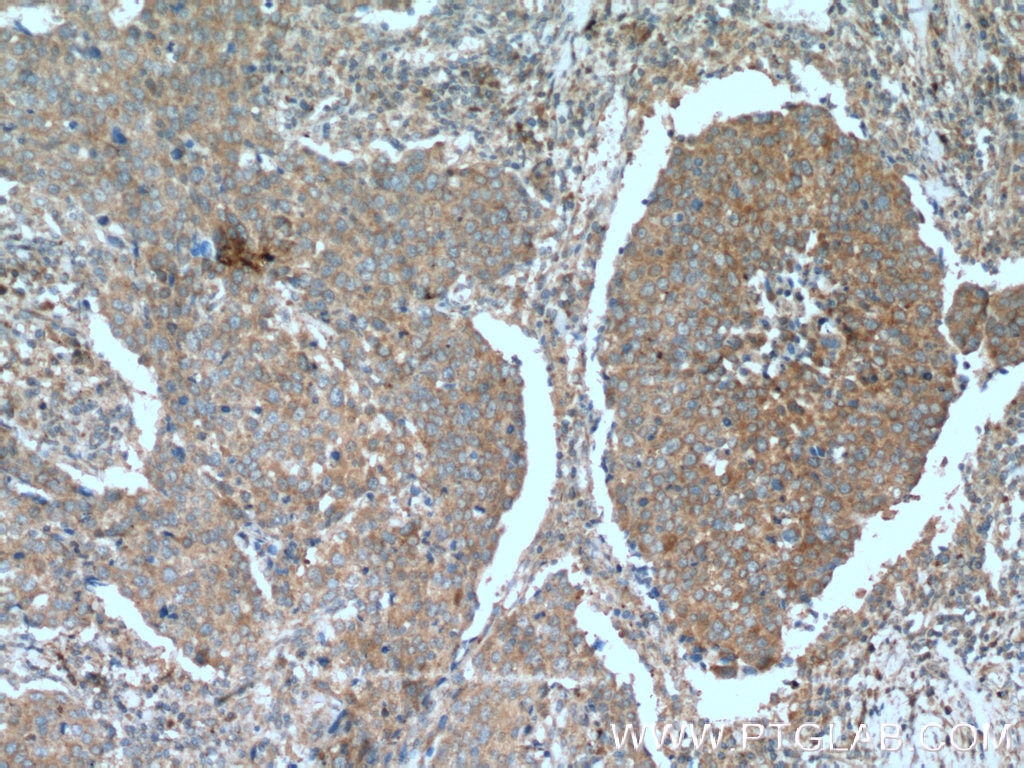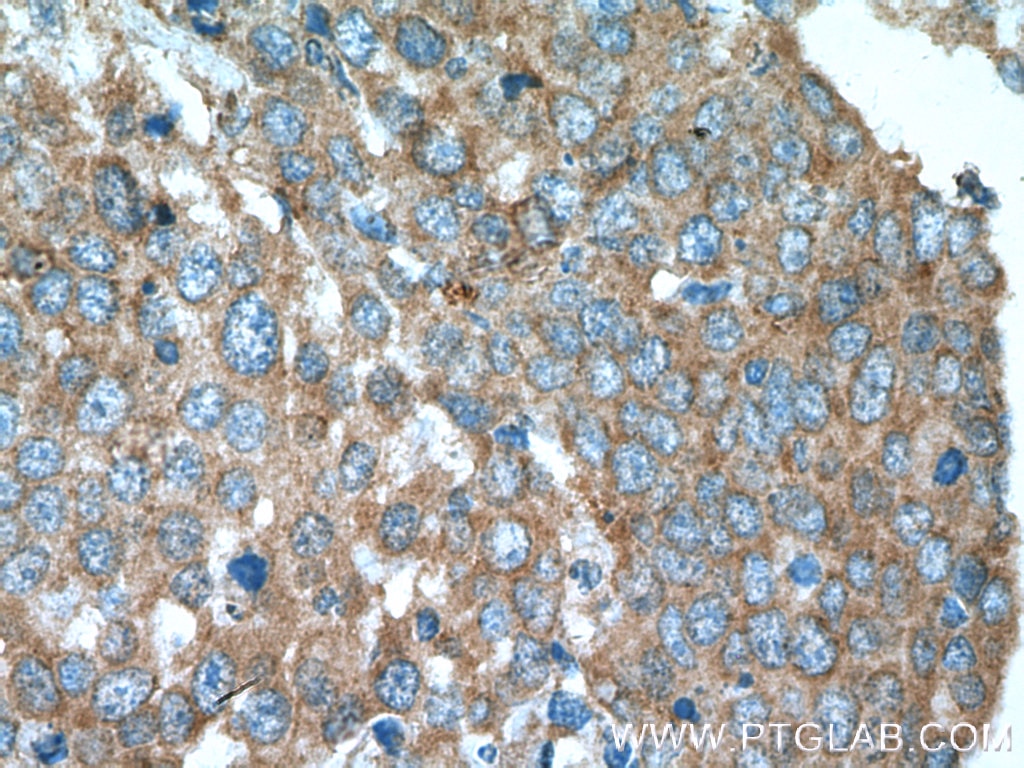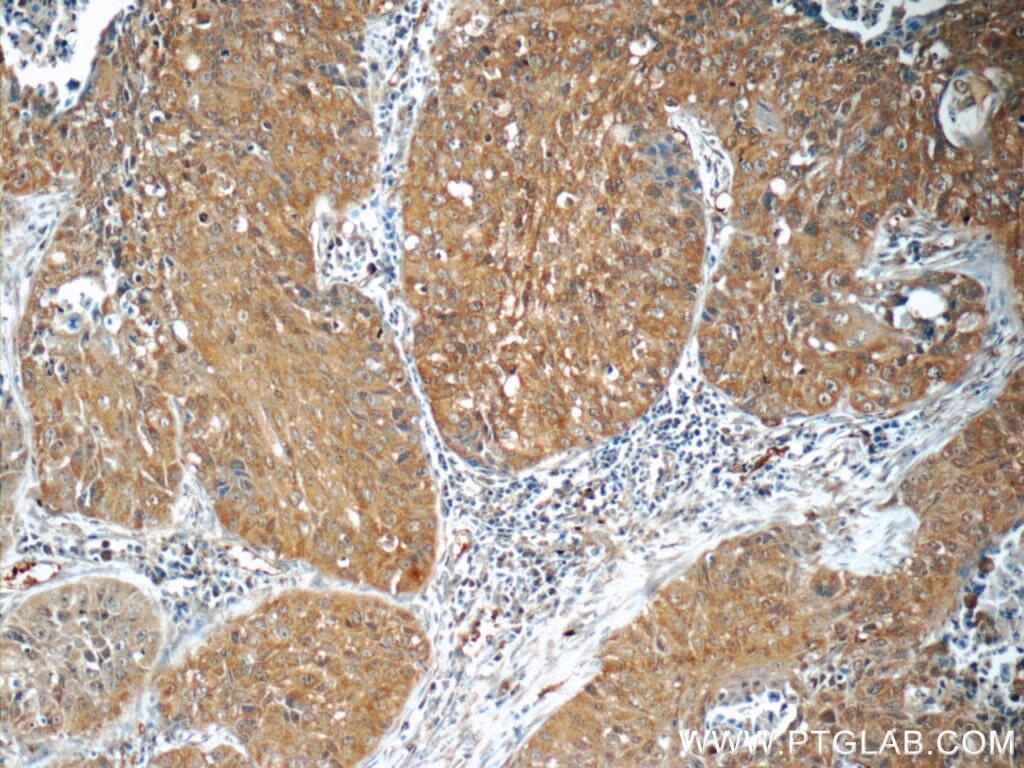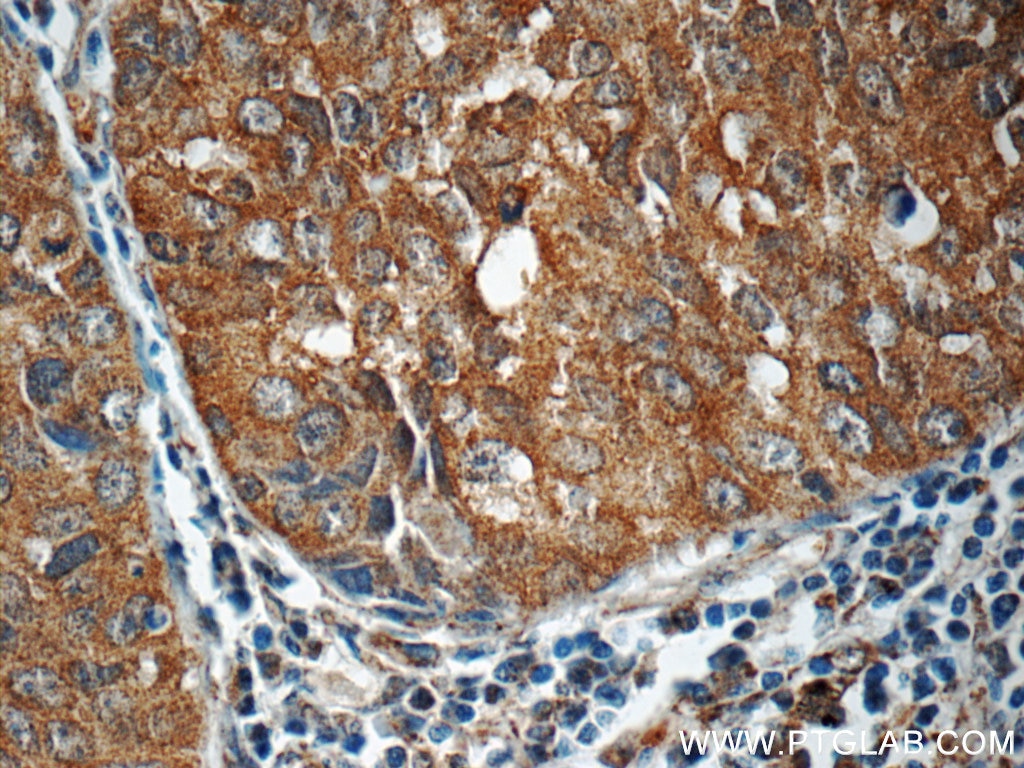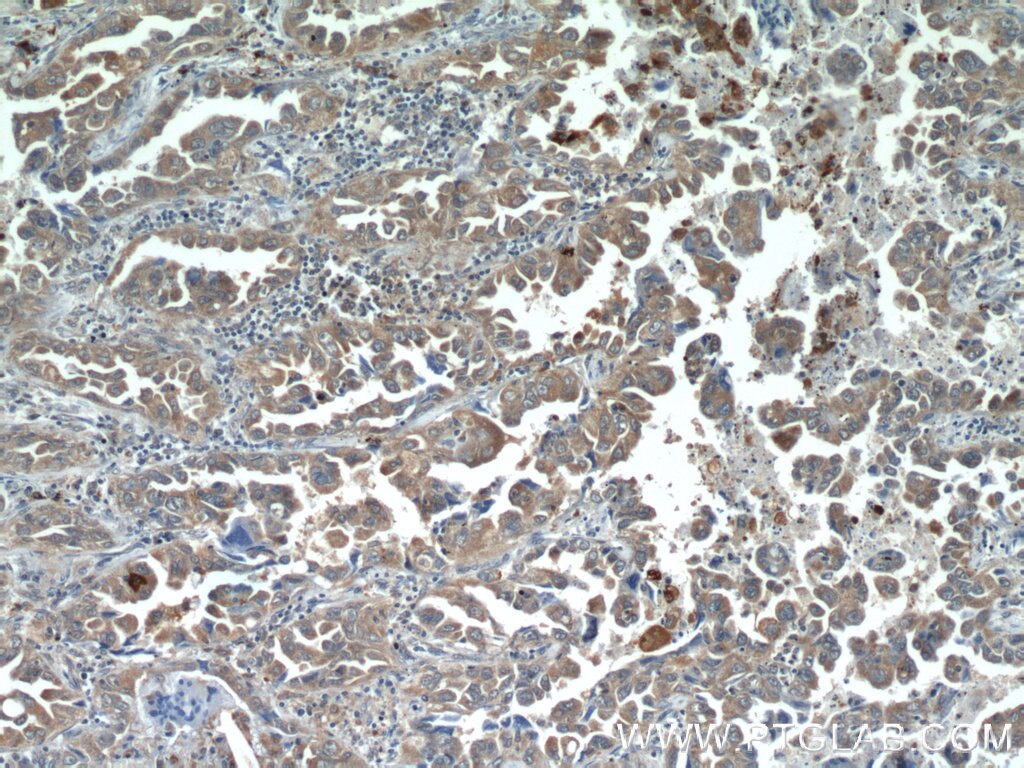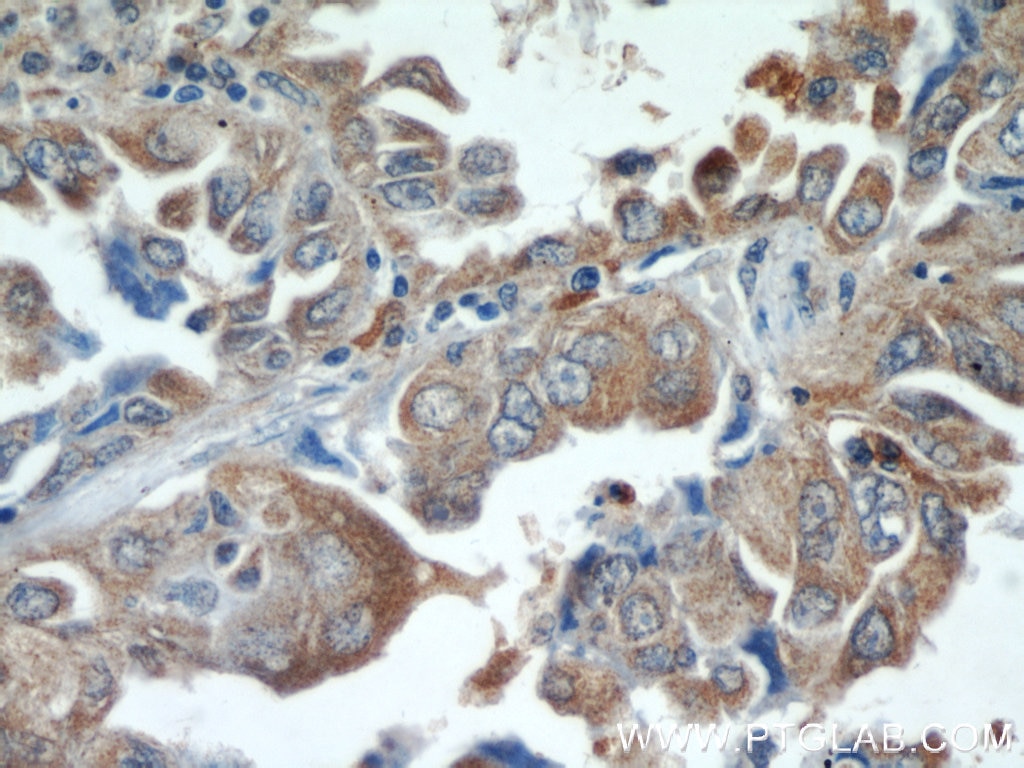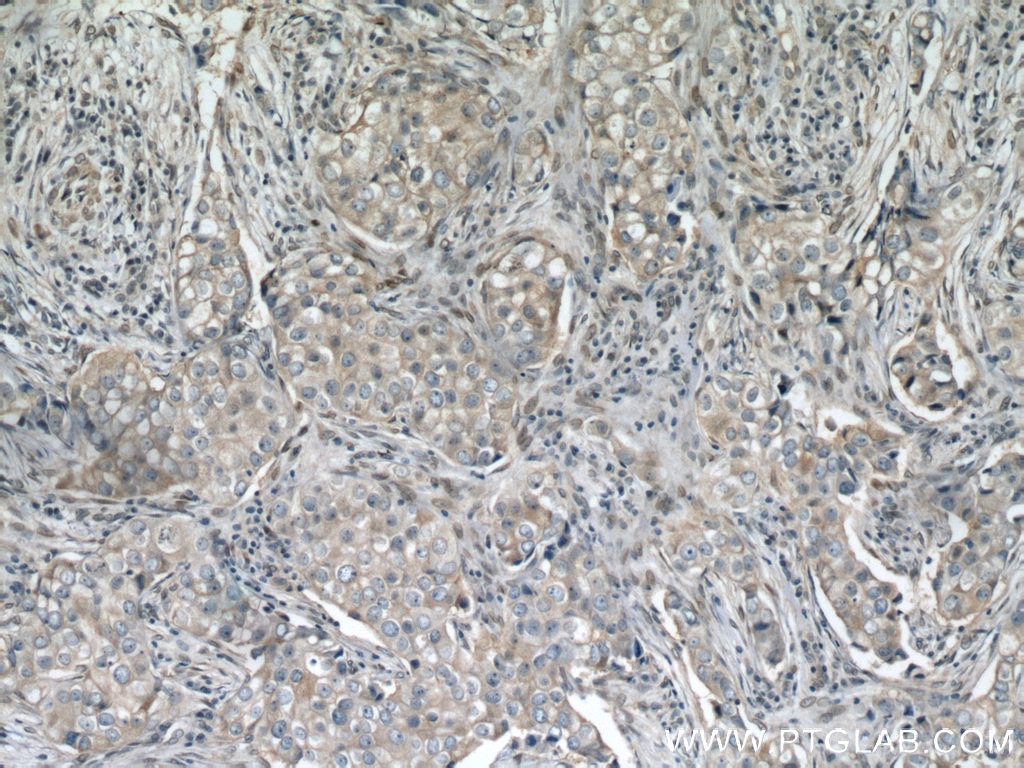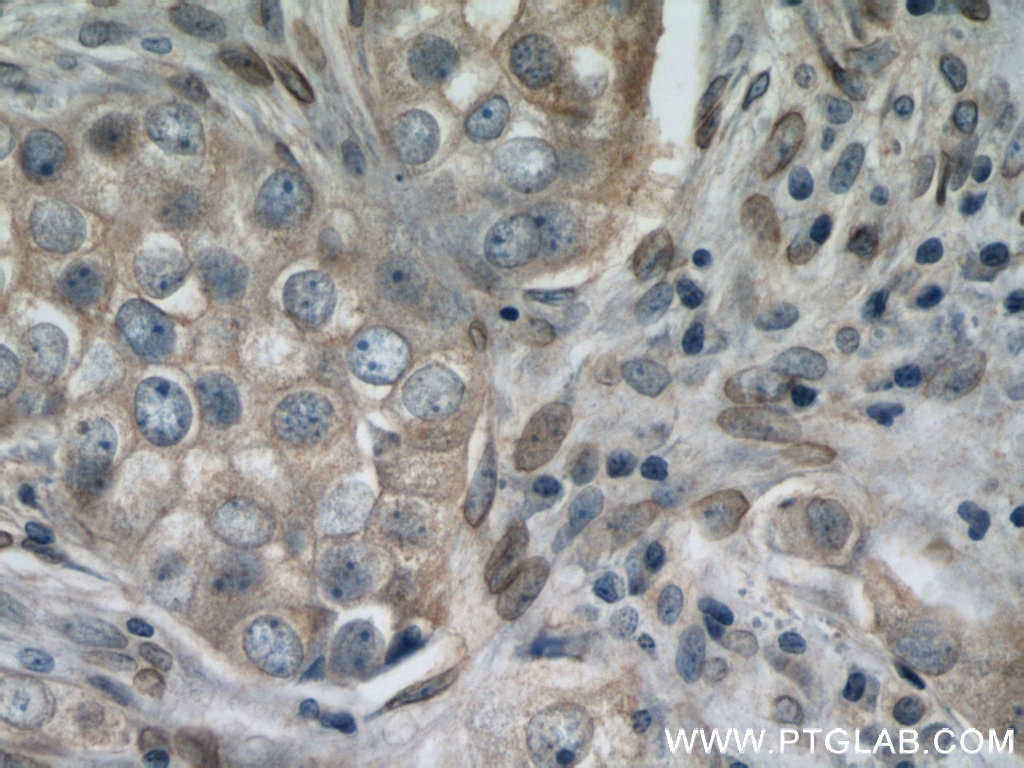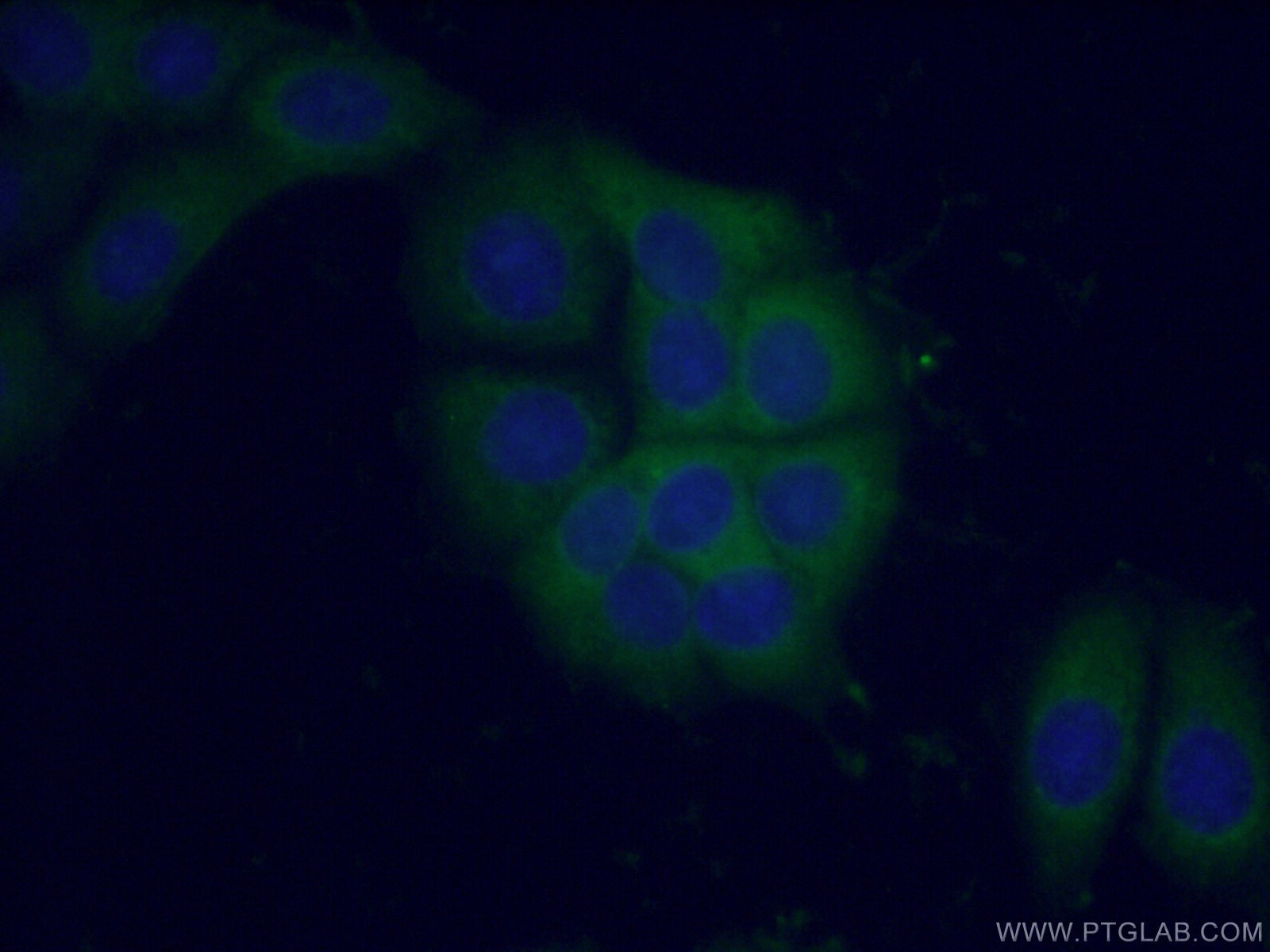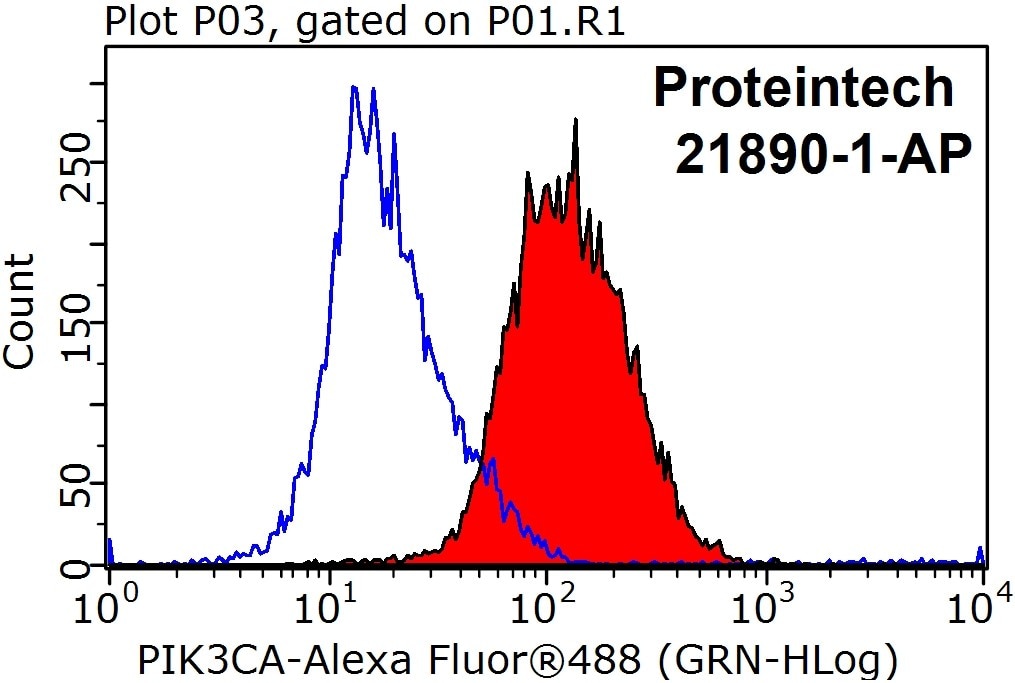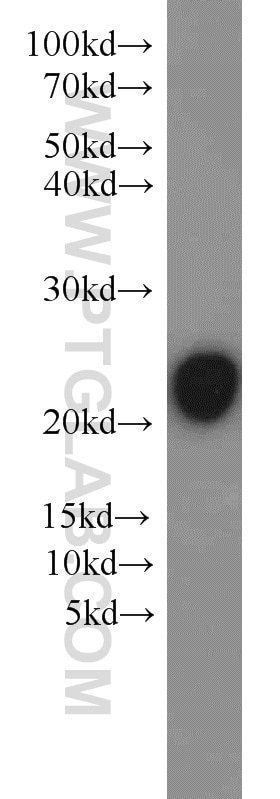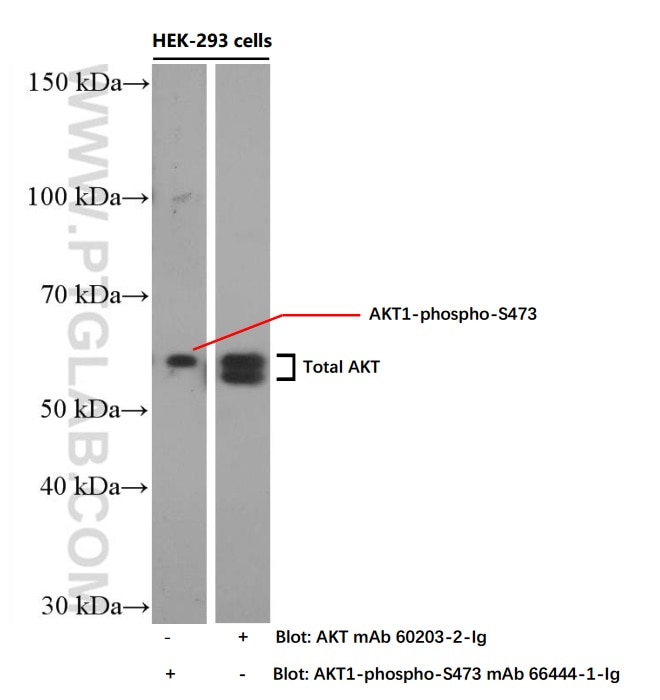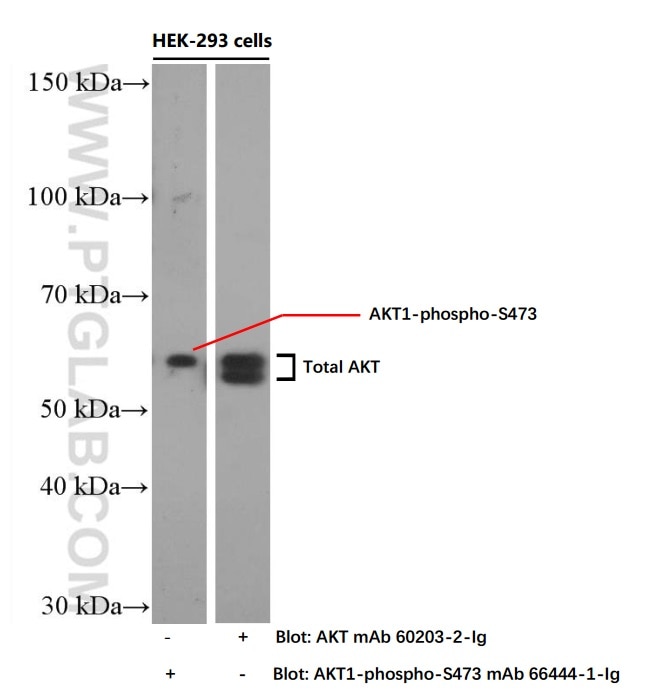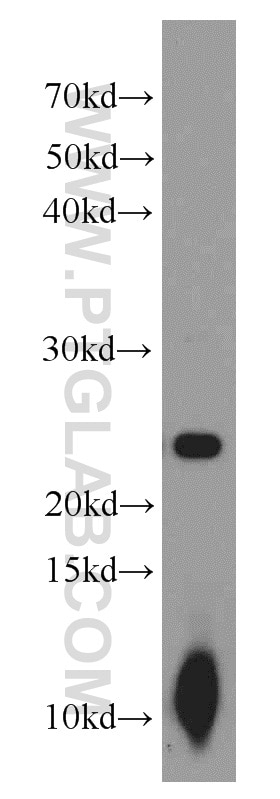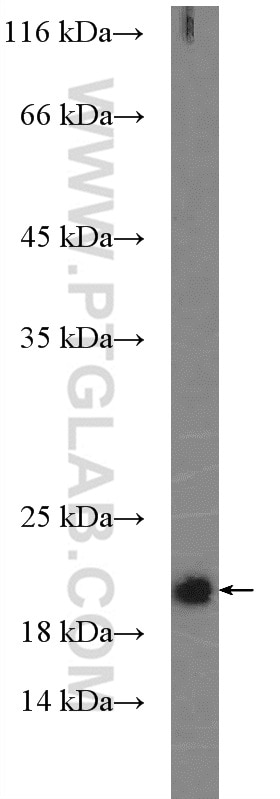PI3 Kinase p110 Alpha Polyklonaler Antikörper
PI3 Kinase p110 Alpha Polyklonal Antikörper für FC, IF, IHC, IP, WB, ELISA
Wirt / Isotyp
Kaninchen / IgG
Getestete Reaktivität
human, Maus, Ratte
Anwendung
WB, IP, IHC, IF, FC, ELISA
Konjugation
Unkonjugiert
Kat-Nr. : 21890-1-AP
Synonyme
Galerie der Validierungsdaten
Geprüfte Anwendungen
| Erfolgreiche Detektion in WB | humanes Hirngewebe, Jurkat-Zellen |
| Erfolgreiche IP | Mausherzgewebe |
| Erfolgreiche Detektion in IHC | humanes Lungenkarzinomgewebe, humanes Mammakarzinomgewebe Hinweis: Antigendemaskierung mit TE-Puffer pH 9,0 empfohlen. (*) Wahlweise kann die Antigendemaskierung auch mit Citratpuffer pH 6,0 erfolgen. |
| Erfolgreiche Detektion in IF | MCF-7-Zellen |
| Erfolgreiche Detektion in FC | Jurkat-Zellen |
Empfohlene Verdünnung
| Anwendung | Verdünnung |
|---|---|
| Western Blot (WB) | WB : 1:500-1:3000 |
| Immunpräzipitation (IP) | IP : 0.5-4.0 ug for 1.0-3.0 mg of total protein lysate |
| Immunhistochemie (IHC) | IHC : 1:100-1:400 |
| Immunfluoreszenz (IF) | IF : 1:50-1:500 |
| Durchflusszytometrie (FC) | FC : 0.50 ug per 10^6 cells in a 100 µl suspension |
| It is recommended that this reagent should be titrated in each testing system to obtain optimal results. | |
| Sample-dependent, check data in validation data gallery | |
Veröffentlichte Anwendungen
| WB | See 18 publications below |
| IHC | See 1 publications below |
Produktinformation
21890-1-AP bindet in WB, IP, IHC, IF, FC, ELISA PI3 Kinase p110 Alpha und zeigt Reaktivität mit human, Maus, Ratten
| Getestete Reaktivität | human, Maus, Ratte |
| In Publikationen genannte Reaktivität | human, Maus, Ratte |
| Wirt / Isotyp | Kaninchen / IgG |
| Klonalität | Polyklonal |
| Typ | Antikörper |
| Immunogen | PI3 Kinase p110 Alpha fusion protein Ag16586 |
| Vollständiger Name | phosphoinositide-3-kinase, catalytic, alpha polypeptide |
| Berechnetes Molekulargewicht | 1068 aa, 124 kDa |
| Beobachtetes Molekulargewicht | 110 kDa |
| GenBank-Zugangsnummer | BC113601 |
| Gene symbol | PIK3CA |
| Gene ID (NCBI) | 5290 |
| Konjugation | Unkonjugiert |
| Form | Liquid |
| Reinigungsmethode | Antigen-Affinitätsreinigung |
| Lagerungspuffer | PBS mit 0.02% Natriumazid und 50% Glycerin pH 7.3. |
| Lagerungsbedingungen | Bei -20°C lagern. Nach dem Versand ein Jahr lang stabil Aliquotieren ist bei -20oC Lagerung nicht notwendig. 20ul Größen enthalten 0,1% BSA. |
Hintergrundinformationen
PIK3CA belongs to the PI3/PI4-kinase family. It phosphorylates PtdIns, PtdIns4P and PtdIns(4,5)P2 with a preference for PtdIns(4,5)P2. Defects in PIK3CA are associated with colorectal cancer (CRC). Defects in PIK3CA are associated with breast cancer. Defects in PIK3CA are associated with ovarian cancer. Defects in PIK3CA may underlie hepatocellular carcinoma (HCC). Defects in PIK3CA are a cause of keratosis seborrheic (KERSEB).
Protokolle
| Produktspezifische Protokolle | |
|---|---|
| WB protocol for PI3 Kinase p110 Alpha antibody 21890-1-AP | Protokoll herunterladen |
| IHC protocol for PI3 Kinase p110 Alpha antibody 21890-1-AP | Protokoll herunterladen |
| IF protocol for PI3 Kinase p110 Alpha antibody 21890-1-AP | Protokoll herunterladen |
| IP protocol for PI3 Kinase p110 Alpha antibody 21890-1-AP | Protokoll herunterladen |
| Standard-Protokolle | |
|---|---|
| Klicken Sie hier, um unsere Standardprotokolle anzuzeigen |
Publikationen
| Species | Application | Title |
|---|---|---|
Food Funct l-Theanine regulates glucose, lipid, and protein metabolism via insulin and AMP-activated protein kinase signaling pathways | ||
J Agric Food Chem β-Sitosterol-D-glucoside from sweet potato exerts an anti-breast cancer activity by upregulating microRNA-10a and PI3K/Akt signaling pathway. | ||
J Hematol Oncol Long non-coding RNA-SNHG7 acts as a target of miR-34a to increase GALNT7 level and regulate PI3K/Akt/mTOR pathway in colorectal cancer progression. | ||
Sci Rep NaoXinTong Capsules inhibit the development of diabetic nephropathy in db/db mice. | ||
J Exp Clin Cancer Res LINC01296/miR-26a/GALNT3 axis contributes to colorectal cancer progression by regulating O-glycosylated MUC1 via PI3K/AKT pathway. | ||
Sci Rep Hypoxia-induced ANGPTL4 sustains tumour growth and anoikis resistance through different mechanisms in scirrhous gastric cancer cell lines. |
